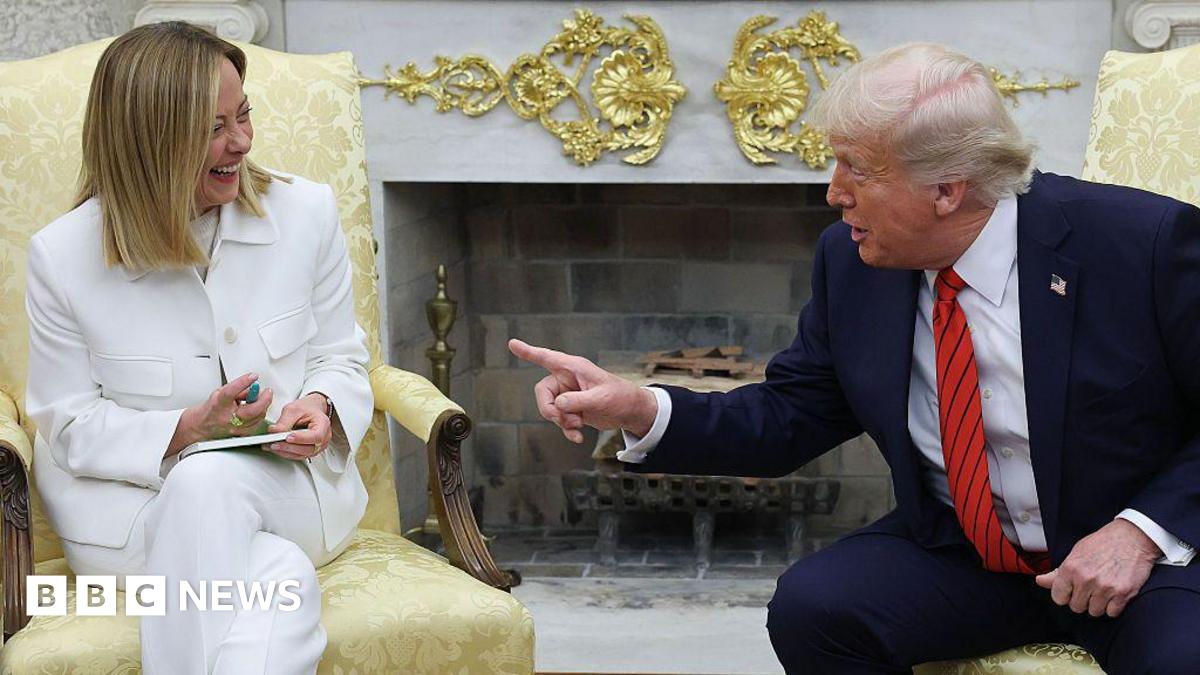Trump-Meloni: US-EU Trade Deal Hopes Rise Amidst Transatlantic Warming
A thaw in US-EU relations, fueled by the burgeoning friendship between former US President Donald Trump and Italian Prime Minister Giorgia Meloni, is sparking renewed optimism for a comprehensive trade agreement. This unexpected alliance, once considered improbable, is now seen by some as a potential catalyst for resolving long-standing trade disputes and forging stronger economic ties across the Atlantic.
While the details remain elusive, the positive signals emanating from both sides are undeniable. Meloni's recent visit to the United States, which included meetings with influential figures beyond the current administration, has fueled speculation about a potential shift in transatlantic trade dynamics. The shared conservative values and populist leanings of Trump and Meloni are believed to be fostering a climate more conducive to negotiation.
A New Era of Transatlantic Cooperation?
For years, trade negotiations between the US and the EU have been fraught with difficulties, hampered by disagreements over agricultural subsidies, intellectual property rights, and regulatory hurdles. The Trump administration's imposition of tariffs on steel and aluminum further exacerbated tensions. However, the current atmosphere suggests a potential turning point.
- Reduced Protectionism: The rise of populist leaders like Meloni, who advocate for a more pragmatic approach to trade, could signal a move away from protectionist policies. This shift, while not guaranteed, offers a glimmer of hope for reaching a mutually beneficial agreement.
- Shared Priorities: Both Trump and Meloni have expressed a desire to reduce dependence on China and strengthen ties with like-minded nations. This shared strategic objective could provide a foundation for closer economic cooperation.
- Focus on Strategic Industries: A potential US-EU trade deal could focus on collaboration in key sectors such as technology, renewable energy, and defense, enhancing mutual competitiveness and reducing reliance on potentially adversarial nations.
Challenges Remain Despite the Optimism
While the prospects for a US-EU trade deal are looking brighter, several challenges remain:
- Internal Opposition: Both in the US and the EU, significant internal opposition to any trade agreement exists. Concerns about job losses, environmental regulations, and national sovereignty continue to fuel resistance.
- Differing Regulatory Frameworks: Harmonizing the vastly different regulatory environments in the US and EU remains a major hurdle. Reaching a compromise that satisfies both sides' concerns will require significant compromise and negotiation.
- Geopolitical Uncertainties: The ongoing war in Ukraine and rising tensions with China could significantly impact the willingness of both sides to prioritize a trade deal. Geopolitical instability could easily overshadow economic considerations.
What's Next?
The coming months will be crucial in determining whether the burgeoning relationship between Trump and Meloni translates into tangible progress on a US-EU trade deal. The outcome will depend on the willingness of both sides to overcome the significant challenges that lie ahead and to prioritize mutual economic benefits. Close observation of the evolving political landscape and trade negotiations will be necessary to gauge the true potential of this unexpected alliance.
Keywords: Trump, Meloni, US-EU trade deal, transatlantic relations, trade agreement, economic cooperation, protectionism, geopolitical uncertainties, Italy, United States, EU, trade negotiations
Related Articles: (This section would link to relevant articles on your website or other authoritative sources about US-EU trade relations, Giorgia Meloni's political stances, and Donald Trump's trade policies.)
Call to Action: Stay tuned for further updates on this developing story as we continue to monitor the progress of US-EU trade negotiations. Subscribe to our newsletter to receive the latest news and analysis.

